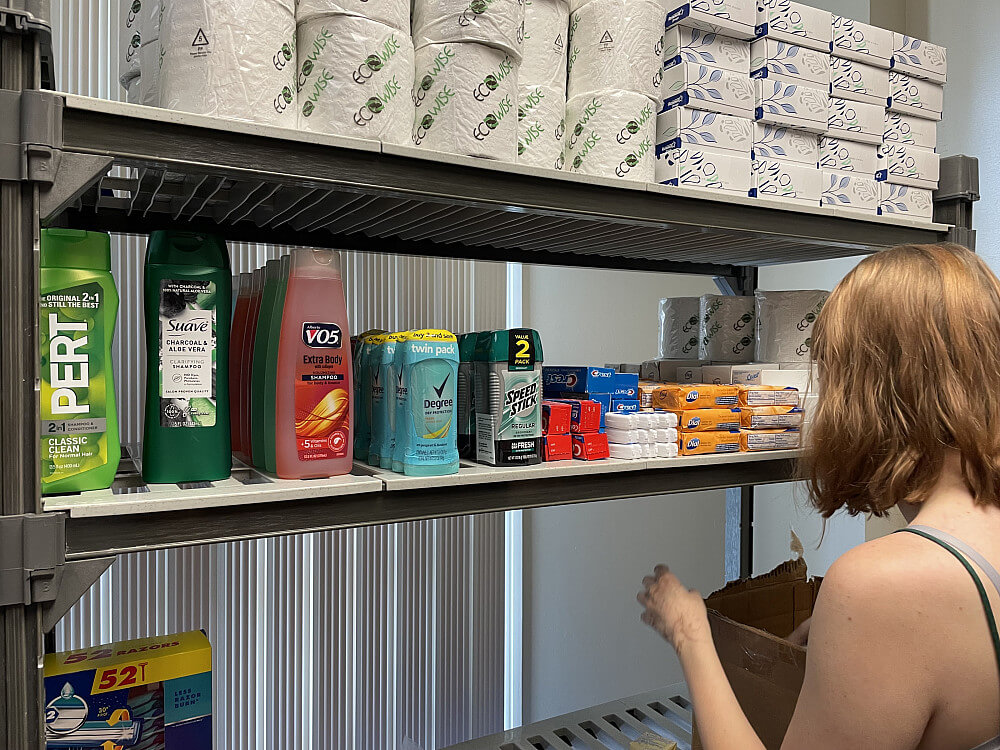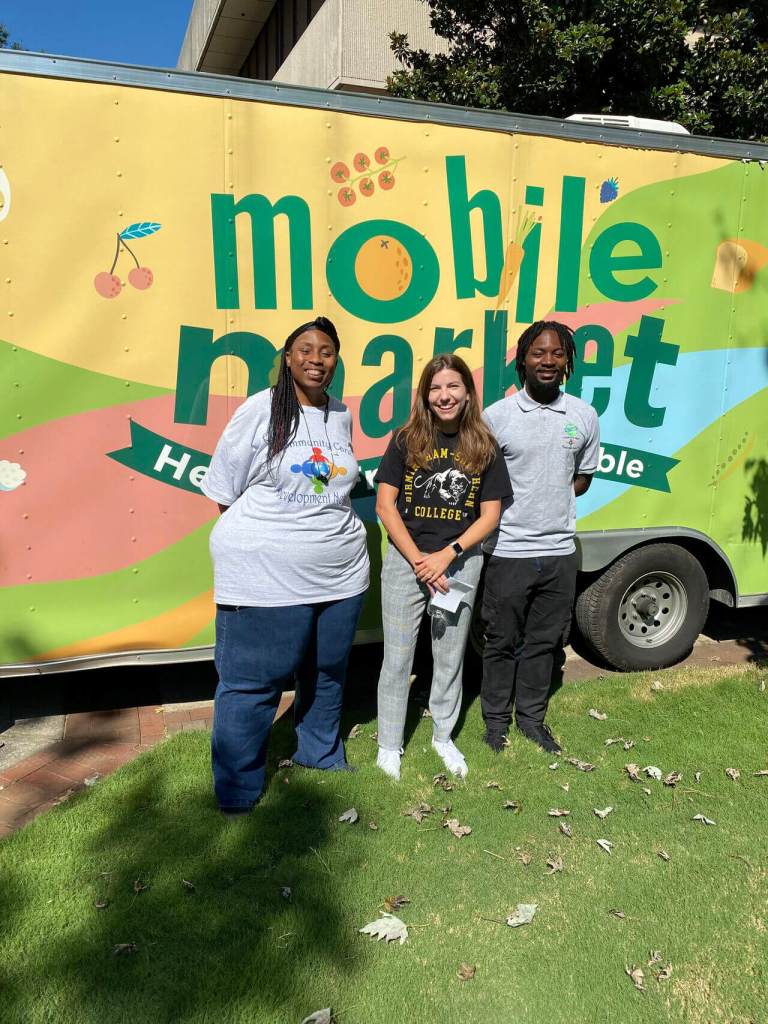Grants Help Address Food Insecurity on College Campuses

Students at seven colleges, including Reinhardt in the North Georgia Conference, have access to free or low-cost food and hygiene products thanks to grants from the United Methodist Board of Global Ministries. Food insecurity on college campuses is often a hidden problem because students do not want to admit they are in need.
The grants were funded by offerings on Human Relations Day, which is coming up on January 14, 2024.
Christie R. House reports at umcmission.org/story/responding-to-food-insecurity-on-college-campuses.
RESPONDING TO FOOD INSECURITY ON COLLEGE CAMPUSES
By Christie R. HouseFood insecurity on college campuses is often a hidden problem because students do not want to admit they are in need…until colleges establish free or low-cost food ministries and discover how many students use them.
Columbia College in South Carolina was one of seven colleges that received UMC Global Ministries’ grants last year to develop pantries or other means of supplying food and hygiene supplies for students. The colleges receiving grants, made possible by Human Relations Sunday offerings, were all United-Methodist related institutions with significant numbers of enrolled students of color with diverse racial and ethnic backgrounds.
At Columbia College’s Koala Pantry, some students who frequented the pantry disclosed that they would not have been able to continue their college education without it. For students without reserve income for basic necessities, it is difficult to focus on being a full-time student while working to scrape together an income.
“The Koala Pantry has been one of my favorite services on campus,” noted another Columbia student. “I have used it many times, along with several of my teammates, when we needed to grab a quick snack between classes and practices. As a volunteer at the Koala Pantry this past spring semester (2023), I also witnessed how much good it does for many other students. I noticed that many rely on the pantry’s supply throughout the week.”
ESSENTIAL PARTNERS PROVIDE SUPPORT
While the grants were used to set up or refurbish existing pantries, these full-time ministries need full-time partners to keep supplies stocked and volunteers working. All of the grantees last year fostered additional resources to keep their pantries viable throughout the year.
At Greensboro College in the Western North Carolina Conference, Tyler Smith, a former student, current theological student and the Greensboro College Community Service coordinator, notes a number of ways they found to support their new Pride Pantry, one of three available on the campus.
Greensboro College works with its athletic teams and honors societies to host food drives to support the pantries. In addition, they partner with Spartan Open Pantry, hosted by College Place United Methodist Church in Greensboro, to give students access to a larger food pantry that provides hot meals throughout the week.
“We hope to shine a spotlight on food insecurity on college campuses and we also plan to offer educational opportunities for our staff to discover more about the issue and make a difference in students’ lives,” Smith noted in a video about the Pride Pantry.
Emory and Henry College in Virginia opened the Stinger’s Supply Shelf a couple years ago and its Bonner scholar program helps to coordinate the pantry operation. Appalachian Center for Civic Life helps to supply volunteers. The campus food vendor, Sodexo, maintains the food supply and churches and individuals donate hygiene supplies.

Henry College in Virginia. (Photo: Courtesy of Emory and Henry)
GOOD GRADES ACCOMPANY GOOD HEALTH
In Waleska, Georgia, Reinhardt University upgraded its pantry to increase the hours of operation. Dr. Walter May, Reinhardt’s dean of students, notes their grant was used to expand access to the pantry with a card-access system; increase storage space; install air conditioning and acquire a base inventory of hygiene products, as well as food preparation and cookware items, such as bowls, plates and utensils.
“The research is clear that college students without reliable food access earn lower grades and suffer higher levels of stress,” says May. “The food pantry is one of many university strategies that supports our students and is an important part of the Student Health Center’s outlook on student life – caring for the whole person.”
Birmingham Southern College in Alabama used its grant to focus on the college’s “E-term” or January term, outside the regular 2-semester schedule of classes. Students themselves developed the idea for a free food market during the extra term that provides fresh produce, breads, meats and dairy. The market was free-of-charge to all students, and open 24/7. This resource was embraced and heavily utilized by the students; the shelves were nearly empty by each week’s restocking.

(Photo: Courtesy of Birmingham Southern College)
Students attending colleges and universities from diverse economic backgrounds often experience financial independence for the first time and they must learn how to balance work and being a full-time student. Many college campuses are surprisingly far from affordable grocery stores, so students without cars find themselves living in a food desert, and if they miss a campus meal, they go without food until the next is served. Working in partnership with UMC Global Ministries, churches, businesses and volunteer agencies, United Methodist-related institutions are responding to this particular form of food insecurity.
Christie R. House is a consultant writer and editor with our United Methodist General Board of Global Ministries and UMCOR.